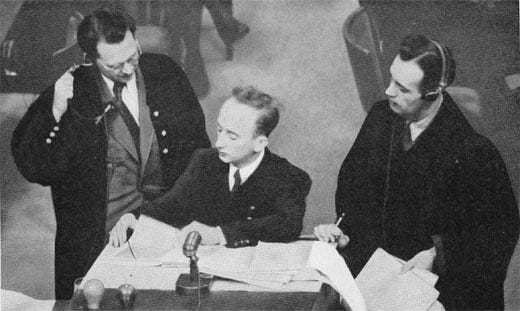John Yoo's diatribe condemning the International Criminal Court cannot go unchallenged ("Prosecuting the Peace-Can international tribunals curb future atrocities or is the intervention of a great power needed?," Books, Jan. 7). His absurd argument that the threat of prosecution may "exacerbate humanitarian atrocities" denigrates the deterrent effect of law enforcement. He dismisses U.S. Ambassador David Scheffer's "All The Missing Souls" as "a soporific memoir" but extols the virtues of American sovereignty and exceptionalism as justifying the unilateral use of our military might. He also distorts William Shawcross's thoughtful conclusion in "Justice and the Enemy" that "legal proceedings against violent extremists are a crucial defense of our civilization." [Shawcross's] father Sir Hartley Shawcross, the chief British prosecutor at the Nuremberg trials, remained a strong supporter of having an international criminal court all his life.
Mr. Yoo also ignores President Dwight D. Eisenhower's 1958 warning: "In a very real sense, the world no longer has a choice between force and law. If civilization is to survive, it must choose the rule of law." Mr. Yoo fails to recognize that law is always better than war.
Benjamin B. Ferencz
Delray Beach, Fla.
Mr. Ferencz was a combat soldier in World War II and a prosecutor at the Nuremberg war crimes trials.
[Source: By Benjamin B. Ferencz, The Wall Street Journal, January 2012]
"It's imperative that every single American now recognizes all this for what it is," says umair haque, Eudaimonia and Co. "The game we've been playing for the last few years -- looking away politely, hoping the bad guys come to their senses -- was always a losing proposition. The bad guys don't have consciences or morals -- would they be bad guys if they did? Until and unless all these things are recognized for what they are -- genuine crimes against humanity, the real thing, identified by a prosecutor of fascism as fascism -- who will have the power to stop them?"


